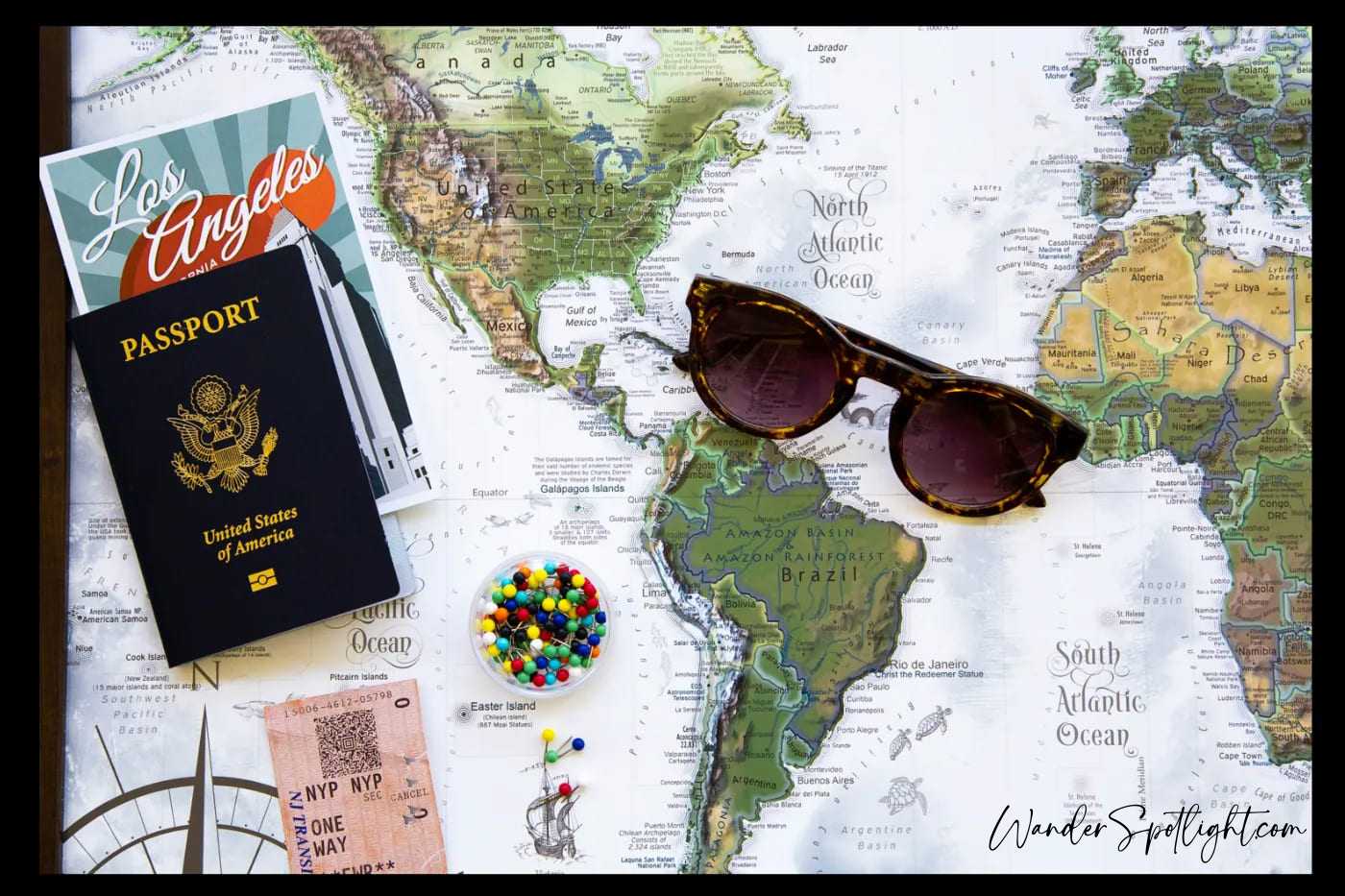When traveling across Asia, understanding visa requirements is as crucial as packing your suitcase. This vast continent, with its diverse countries, has visa regulations that vary depending on your nationality, length of stay, and purpose of visit. Whether you’re wondering “us to Singapura need visa”, asking about the “letter of invitation visa China S2”, or figuring out if “do US citizens need a visa for Vietnam”, this in-depth guide will help you confidently navigate each country’s visa policies. Whether you’re visiting for tourism, business, or work, this guide includes external links to official resources, covers visa extensions, multiple-entry visas, and online visa applications to make your travels as hassle-free as possible.
Let’s dive into Asia’s visa maze so you can explore the rich cultures and breathtaking landscapes with peace of mind.
Table of Contents
Introduction to Visa Requirements for Asia
Asia, a diverse continent with a mix of tourist hotspots and business hubs, has varied visa requirements that change frequently. Whether you’re concerned about the “Chinese visa as a Korean citizen” or looking to know if “Korean passport holder visa to China from USA” applies to your travel, this guide covers every detail. The requirements can be straightforward for some countries, but for others like China and Vietnam, understanding the validity of visa and specific documents such as a letter of invitation visa China S2 can be a bit more challenging.
This guide also provides a roadmap for those asking about “Singapore work visa for Chinese”, “visa requirements for Chinese citizens”, or “Singapore entry form” regulations. While short-stay visas are common, business travelers and those looking to extend their stay need to be aware of visa extension procedures and the differences between single-entry and multiple-entry visas.
Visa Requirements by Region
Southeast Asia
Singapore
For most nationalities, Singapore is a visa-free destination for short stays. The question that arises frequently is: “us to Singapura need visa?” For U.S. citizens, the answer is no; you can stay for up to 90 days without a visa. However, for longer stays or for those traveling for business or work, obtaining a visa is essential. Chinese citizens, for example, must apply for a Singapore work visa, which can be done through the Ministry of Manpower’s website.
Tourists from India, Russia, and other countries requiring visas can apply online through Singapore’s Immigration & Checkpoints Authority (ICA), while travelers from countries that don’t require a visa are encouraged to fill out the Singapore entry form before entering the country. This streamlined process ensures smooth entry through Singapore’s ports of arrival.
Vietnam
For many travelers, one of the most common questions is: “Do US citizens need a visa for Vietnam?” Yes, U.S. citizens do need a visa, but the process has been simplified through Vietnam’s eVisa system. The Vietnam eVisa is valid for 30 days and can be obtained online for single-entry visits. You can upload your passport details and receive an approval letter electronically, allowing you to bypass long lines at the airport.
For those planning longer stays, multiple entries, or business trips, a visa-on-arrival or embassy-issued visa is required. Be sure to confirm your visa needs before booking, as Vietnam’s visa rules are known to change frequently. Extending your visa while in Vietnam is also possible and requires a visit to the local immigration office.
Thailand
Thailand is one of the most popular tourist destinations in the world, and fortunately, many nationalities can visit visa-free for short stays. U.S., Canadian, Australian, and most EU citizens can stay in Thailand for up to 30 days without a visa, but for longer stays or frequent visits, applying for a multiple-entry visa might be necessary. The Royal Thai Embassy offers details on obtaining a tourist visa or a business visa, depending on your needs.
If you’re planning to work or volunteer in Thailand, you’ll need a specific visa, and documentation such as work permits or a letter from your employer or sponsor will be required.
Malaysia
Malaysia’s visa policies are similar to Thailand’s, with many nationalities allowed to stay visa-free for up to 90 days. U.S. and EU citizens fall into this category. However, for those asking questions like “us to Singapura need visa” for neighboring Malaysia, it’s important to note that visa-free stays apply only for short visits. For longer stays or business purposes, you must apply for a specific visa through the Malaysian Immigration Department. Malaysia also offers an eVisa service, making it easier for travelers from visa-required countries to apply online.
East Asia
China
China has one of the most complex visa systems in Asia, and visitors often ask about the validity of visa China or “letter of invitation visa China S2.” For tourist visas, most travelers need to apply through the Chinese visa application service center, with requirements including a detailed itinerary and, in some cases, a letter of invitation from a Chinese host.
If you’re applying for a work or business visa, you’ll need to meet stricter requirements, such as the “Chinese visa as a Korean citizen” or “Korean passport holder visa to China from USA.” The validity of visa and duration of stay often depend on the embassy processing your request, so check your visa details carefully before departure.
Hong Kong
Hong Kong maintains its own immigration policies separate from mainland China. The question “do American citizens need visa for Hong Kong?” often arises, and the answer is no for visits up to 90 days. For longer stays or business trips, the Hong Kong Immigration Department provides detailed guidelines on visa applications. Hong Kong’s visa-free policy for short-term tourists makes it an appealing stopover or destination for travelers.
South Korea
South Korea allows visa-free entry for up to 90 days for citizens of the U.S., EU, and several other countries. However, those asking “Chinese visa as a Korean citizen” need to know that specific visa policies apply depending on nationality and travel purpose. If you’re visiting South Korea for longer stays or business purposes, a work visa or business visa can be obtained through the South Korean Ministry of Foreign Affairs.
Japan
Japan has a relaxed visa policy for short-term tourists from most countries, including the U.S., Canada, and the EU. Travelers can enter visa-free for up to 90 days. However, for those planning extended stays or business travel, Japan’s Immigration Services Agency provides information on applying for long-term visas, work permits, and other visa categories. Ensure you have all the necessary documentation if you’re entering Japan for purposes other than tourism.
Central Asia
Kazakhstan
Kazakhstan offers an eVisa option for travelers from countries that require visas. U.S. citizens and many EU nationals can visit visa-free for 30 days. For business travel or stays exceeding this period, travelers need to apply through Kazakhstan’s Ministry of Foreign Affairs.
Uzbekistan
Uzbekistan has recently introduced an eVisa system for tourists, simplifying travel to this historic region. For those asking about “visa requirements for Chinese citizens”, Uzbekistan’s eVisa service is available to many nationalities, including China. Apply online through the Uzbekistan eVisa portal.
Kyrgyzstan
Kyrgyzstan offers a 60-day visa-free entry for U.S. citizens and many others. For those requiring a visa, Kyrgyzstan’s online visa portal simplifies the process. Business travelers should check for special requirements through the Ministry of Foreign Affairs.
Tajikistan
Tajikistan allows travelers to apply for an eVisa online, valid for 45 days. This visa is particularly useful for those planning to visit the famed Pamir Highway. Visit the Tajikistan eVisa portal for more details.
Business and Work Visas in Asia
Asia is a thriving business hub, attracting professionals from around the world. If you’re planning to work, you will need a business or work visa, such as the “Singapore work visa for Chinese”. Countries like China, Singapore, and Vietnam have strict documentation requirements, including letters of invitation from employers, work permits, and proof
of qualifications. These processes can take longer, so apply well in advance.
Visa Extensions and Multi-Entry Permits
Many Asian countries offer visa extensions for travelers wanting to stay longer. For instance, Vietnam allows extensions on its Vietnam visa through local immigration offices or agencies. Similarly, China offers extensions through the local Public Security Bureau (PSB), though it requires additional paperwork, such as proof of residency and itinerary changes. Hong Kong also allows short-term visa extensions for business or educational purposes.
For those planning to travel in and out of countries frequently, obtaining a multi-entry visa can save you time and hassle. China and Vietnam both offer multi-entry options, which are ideal for travelers exploring multiple countries or conducting business.
How to Apply for Visas Online
Many Asian countries now offer online visa applications, simplifying the process for travelers. Countries like Vietnam and Uzbekistan have fully operational eVisa systems. It’s crucial to use official government websites or trusted third-party providers when applying for visas online. Websites like the Vietnam eVisa system or the Chinese visa application service center offer secure platforms for uploading documents and paying fees.
To avoid scams, always verify that the website is legitimate and directly linked to the country’s official immigration service. Some embassies also provide in-person consultations if you prefer assistance through traditional channels.
Conclusion
Visa requirements for Asia vary significantly from country to country, but with proper planning, you can ensure a hassle-free trip. From addressing the “us to Singapura need visa” question to guiding you through “letter of invitation visa China S2” applications, this comprehensive guide has covered the most essential visa information for traveling across Asia. Remember, always check the official visa services for each country before traveling, especially as regulations can change frequently.
Whether you’re visiting the vibrant streets of Singapore, the serene landscapes of Vietnam, or the bustling markets of China, make sure you have all your visa requirements in order to enjoy the beauty and richness Asia has to offer.
Ready to explore Asia? Now that you have all the details on visa requirements, dive into our guide on the “15 Enchanting Best Destinations in Asia That Will Captivate Your Soul“ and start planning your unforgettable adventure!
What documents do you need to travel to Asia?
You’ll need a valid passport, a visa (if required for your destination), proof of onward travel, and travel insurance. Some countries may also require additional documents like an entry form.
Which country is the easiest to get a visa in Asia
Thailand, with its easy visa-on-arrival process for many nationalities, is considered one of the easiest countries for obtaining a visa.
Do you need a visa for Southeast Asia?
Visa requirements vary by country. Some, like Thailand and Malaysia, offer visa-free or visa-on-arrival options, while others, like Vietnam, require a visa for most nationalities.
Do I need a visa for Thailand?
Many nationalities, including U.S. and EU citizens, do not need a visa for stays of up to 30 days in Thailand for tourism purposes.
Do I need a visa for Vietnam?
Yes, most travelers need a visa to enter Vietnam. You can apply for an eVisa or visa-on-arrival depending on your nationality.
Do I need a visa to visit Singapore?
For most nationalities, no visa is required for short stays in Singapore, usually up to 90 days for tourism.
Do I need a visa for Japan?
Citizens of many countries, including the U.S., EU, and Australia, do not need a visa for short-term tourism (up to 90 days).
How long can you be in Asia without a visa?
It depends on the country. Some countries offer visa-free stays for up to 90 days, while others may allow shorter durations.



1 thought on “Unlock the Secrets: Essential Visa Requirements for Asia Every Traveler Must Know”